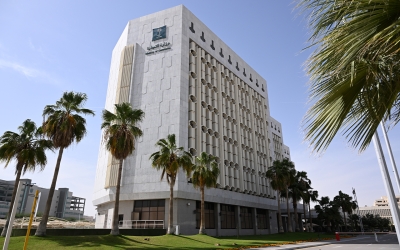
Of the 80,000 new business commercial licenses registered in Q2 of 2025 in Saudi Arabia most of them are in high growth industries such as Blockchain, AI, and Big data analytics. The total number of valid business records in KSA is now 1.72 million. Saudi Arabia witnessed 34% growth in AI commercial registrations, and 51% growth in Blockchain commercial registrations with over 4,000 companies now registered in the country.
The figures were provided by the Saudi Ministry of Commerce Quarterly Business sector bulletin. The bulletin also noted that there was growth in financial services sector, insurance, gaming and entertainment as well.
Through the National Transformation Program, the Kingdom is investing in infrastructure, digitalization, and regulatory improvements to attract investment and spur entrepreneurship nationwide.
Citing Minister of Commerce Majed Al-Qasabi, the bulletin stated: “The rectification is part of a broader set of measures aimed at combating commercial concealment, which remains one of the key challenges hindering the growth of the local economy.”
It added that the minister said the ministry has recently worked on rectifying the status of commercial registrations and updating their data to ensure compliance with regulations and to enhance market transparency.
Riyadh accounted for the largest share of new registrations during the quarter with 28,181 licenses, followed by Makkah with 14,498, the Eastern Province with 12,985, and Qassim with 4,920. Asir, which has been gaining prominence as an investment destination, recorded 3,875 new commercial records.
The second quarter also saw the implementation of the newly approved Commercial Register Law and Trade Names Law. These reforms have eliminated the need for separate subsidiary registrations by allowing businesses to operate under a single commercial record across the nation, regardless of their geographic location.
The changes are intended to simplify licensing, reduce administrative burden, and improve the overall ease of doing business in the Kingdom.
Several sectors experienced strong year-on-year growth. Registrations related to cloud data storage and analytics increased by 48 percent, reaching 5,894 records, with Riyadh leading the way at 3,775. Activities related to artificial intelligence increased by 34 percent, resulting in 14,409 new records, of which 8,909 were registered in the capital.
Women’s participation in the commercial sector continued to rise, with female entrepreneurs accounting for 49 percent of newly issued commercial records.
Investor interest from abroad also surged, with registrations by foreign and GCC investors rising by 38 percent in the second quarter to more than 70,000 new records. Of these, 38,640 registrations were made by foreign nationals and 31,488 by regional Gulf investors.

















